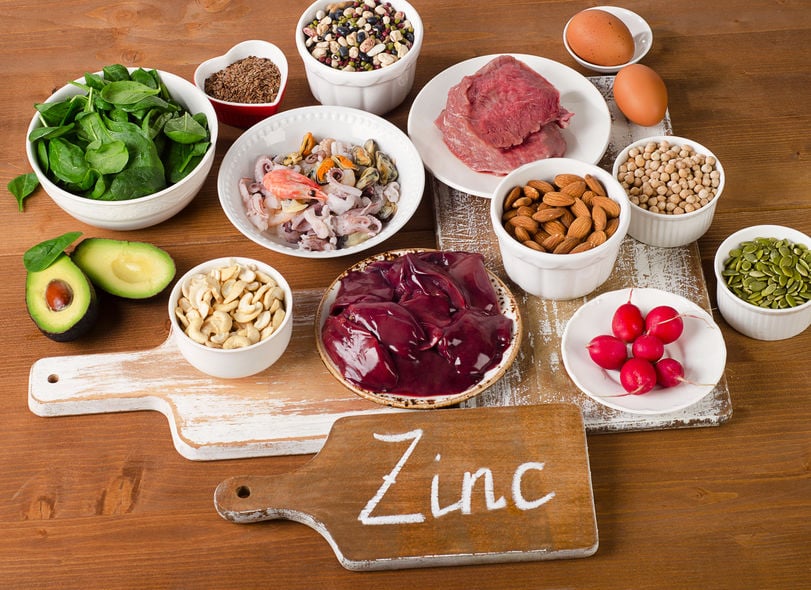The Nutrient That Does It All
Zinc is a vital nutrient that boosts the immune system, promotes wound healing, and supports proper growth and development. Though zinc deficiency in the United States is not widespread, some people are at risk, including pregnant women, vegetarians, and people with gastrointestinal diseases. Below are 10 of the most common signs and symptoms of zinc deficiency.

#1: Frequent head colds
Zinc deficiency is linked to a lowered immune system. If someone starts catching colds or infections more easily, this could be a sign of a zinc deficiency. Additionally, evidence shows that when someone takes zinc within 24 hours of the start of cold symptoms, zinc can shorten the length of the cold.
#2: Do you have to squint?
Blurry vision can be a result of zinc deficiency. The eye contains high concentrations of zinc, and when someone is zinc-deficient, they may experience altered vision. In severe cases, zinc deficiency can cause changes in the retina.
#3: Weight loss isn’t always good
Because zinc deficiency can lead to appetite changes, unexplained weight loss can be a symptom of zinc deficiency. This can also lead to mood changes, irritability, or depression.
#4: Balding too soon?
Unexplained hair loss is a common symptom of zinc deficiency. However, over-supplementation of zinc can be just as bad for hair as too little zinc. People should focus on getting adequate zinc from food sources before trying supplements.
#5: Wounds should heal in 2-3 weeks
Zinc also supports healthy skin and proper blood clotting. A wound that won’t heal can be another sign of zinc deficiency. In fact, zinc supplementation is often a prescribed treatment for stubborn wounds. Zinc has also been used to treat acne and is one of the most widely studied acne treatments.
#6: Heading for the bathroom more often?
Zinc deficiency can make people more prone to diarrhea. Studies of malnourished children in India, Africa, South America, and Southeast Asia have shown that zinc supplementation can shorten the course of infections that cause diarrhea.
#7: Is food less pleasurable?
An unexplained decrease in senses of smell and taste can be a symptom of zinc deficiency. This is because one of the enzymes required for proper taste and smell depends on zinc.
#8: Slow growth in children
Pregnant woman are often prescribed a zinc supplement because zinc supports proper growth and development. Inversely, if a child is deficient in zinc, they may not grow or develop properly. Slow growth in a child can point to a zinc deficiency.
#9: Frequent brain fog
A study at the University of Toronto showed that zinc has a key role in regulating how neurons communicate. A lack of zinc can lead to foggy thinking and memory problems. Because zinc is so important to cognitive function, zinc supplementation has also been successful in improving the symptoms of ADHD.
#10: Drops in blood sugar
Researchers have found links between zinc and diabetes prevention. Zinc provides natural blood sugar control and helps maintain insulin production. A zinc deficiency can lead to low insulin, regardless of weight or other health conditions. Studies have shown the most benefits of zinc in preventing diabetes, though evidence is growing for its benefits in those who already have diabetes.
So what should I do if my zinc levels are low?
Zinc is found in a variety of foods, including red meats, poultry, and oysters. Vegetarians may want to try incorporating more baked beans, cashews, peas, almonds, or zinc-fortified cereals into their diets. People who are concerned about their zinc levels should consult with their doctor for testing and treatment.




